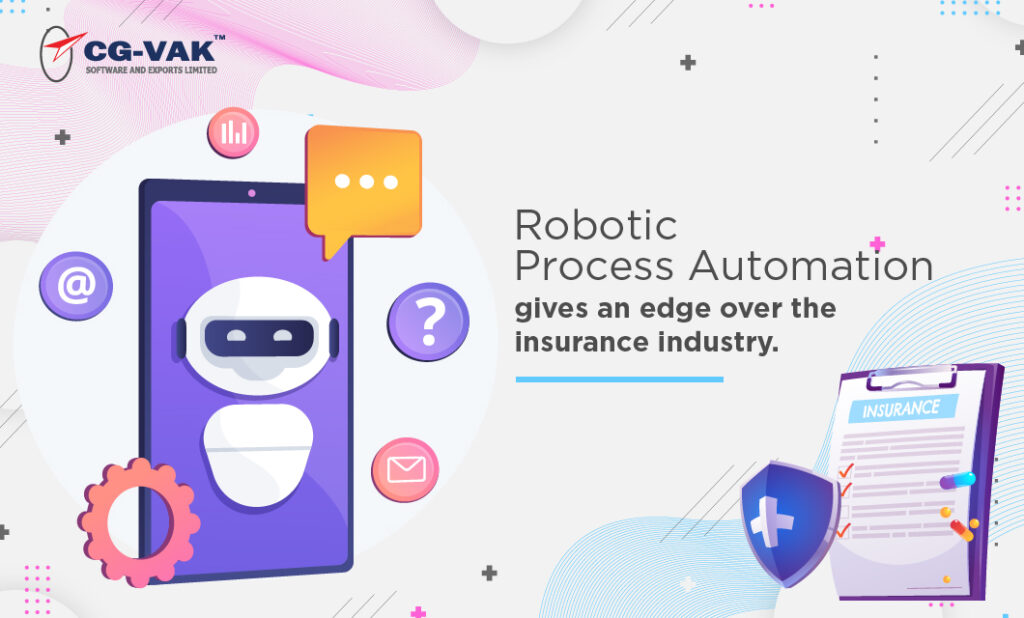The insurance industry is respected and allows us to live stress-free. Since uncertain events, every organization faces all around the world. Many people are willing to sign up for insurance for their safety. However, many companies are looking to leverage and navigate by being dependent on technology and automatic process.
Millions of people every day are signing up. To match the overflow of critical operations within the companies, the introduction of RPA is inevitable. Robotic process automation also banishes human jobs and makes them focus more on other projects. Also, this reduces company costs since there is a reduction in manual labor. Many organizations are highly leveraged. By process automation because RPA handles by validating from customer onboarding to complex insurance processes.
From the research and study McKinsey says, more than 25% of insurance industry will be automated before 2025.
Sounds alluring?
Prominent area of Automation in the Insurance industry
Data and process streamlined:
Daily insurance companies receive a large amount of Data. Cognitive and using AI automation. Operations are all redefined. With process automation taking place, data can run efficiently without errors Because it is delivered accurately by the RPA technology. Solutions are deployed focused on claims processing new business and underwriting, rapid customer onboarding, rules-based processes, and reinventing customer journeys while taking care of operational costs.
Compliance data increased:
Every industry must be up to date and stay on the current trends. Data ingestion automation drives business decisions better. It is crucial to enrich data and analytics. Data ingestion automation helps to predict future data and create better business opportunities by measuring the risk.
Provides seamless scalability:
The jackpot in automation is; it never gets exhausted from its process with the demand on the insurance company and the overflow of daily operations. The BOT makes it faster, leaner, and scalable by giving an effective system. That helps to cut out the training to the employees. Since; BOT handles the process. We can expect error-free and flawless executions.
More focus on customer experience:
The process is all automated and simplified by providing a quick solution. It automatically increases the customer experience; RPA is helping with repetitive items. Though, more manual resources can be added. So, they can provide innovative and creative suggestions. More effectiveness shown in the workplace helps to increase employee satisfaction.
Innovative areas of Automation in the insurance industry amplified
- AI and RPA help the insurer. To increase the sales volume and underwriting time using the leverage of insurance underwriting automation. It decides the process from top to bottom. So, this improves the overall decision-making strategies and Process.
- While Data is the informal way to define the outcome, and it is vital to the business. Leverage the data for effective risk management; helps to estimate the market prognosis and customer expectation to satisfy them by putting business ahead one step with the competitors.
- The first notice of loss (FNOL) process followed traditionally. Since technologies like AI and IOT are replacing the process and the new technologies are introduced. The insurance companies are putting effort into innovations. With constant effort, the companies reach out to the customer on time with the help of continuous process improvement.
- In this Difficult situation; Most of the organizations are working from home where they adapted to it. By implementing cost-effective solutions using Cloud-based integration enables us to work remotely. This also helps to reduce the cost of enterprise operation from 30% – 40%.
- Collaborating with CG-VAK makes the organization comfortable in this evolving market. With the handful of skill-sets and experience. CG-VAK helps to develop new risk management strategies in the quickest time possible.
Wrapping it up
By absorbing the market today, in the insurance business implementing AI, IOT and ML have already revolutionized the niche. Augmenting underwriting, a smart self-service portal, touchless claims are the notable AI innovations. Hyper-automation initiatives make the process more effective and independent.
Why waiting? Take the opportunity to leverage your business with advance and proactive technology. Our expert process automation, understands and enhances your business like never before.
